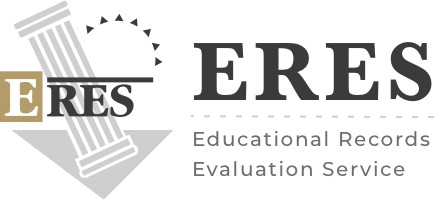Blog
HIPAA for Nurses: A Guide to Privacy & Compliance

The Health Insurance Portability and Accountability Act (HIPAA) is a cornerstone in the US healthcare system. For nurses, adherence to HIPAA is integral to maintaining patient trust and ensuring the confidentiality and security of healthcare information.
This becomes even more crucial for international students in nursing, who must understand and rigorously apply these standards in a healthcare environment that may be quite different from their home countries.
This guide aims to provide a clear and comprehensive understanding of HIPAA's impact on nursing practice. It will offer valuable insights for international nursing students to ensure they meet these essential privacy and compliance requirements in their professional journey.
What Is The Role Of HIPAA In Nursing Practice?
HIPAA plays a critical and multifaceted role in nursing practice, influencing various aspects of patient care and professional conduct. Here's how HIPAA rules for nurses impact nursing:
Keeping Patient Information Private:
HIPAA helps nurses keep patients’ personal health information safe and private. Nurses handle sensitive patient details, and HIPAA tells them how to do this carefully.
Making Patients Trust Nurses:
When patients know that nurses are keeping their information safe, they trust them more. This trust is essential for good care because patients feel comfortable sharing important health details.
Sharing Patient Information the Right Way:
Sometimes, nurses need to tell other healthcare workers about a patient’s health for treatment or billing. HIPAA gives rules on how to share this information properly.
Being Careful How They Talk and Write About Patients:
HIPAA makes nurses think about how they talk about patients, where they talk about them, and how they send patient information using computers or phones.
Keeping Good Records:
HIPAA makes sure nurses keep patient records well. This means writing everything correctly, keeping it up-to-date, and making sure it’s stored in a safe place, whether on paper or a computer.
Learning About Privacy Rules:
Nurses get training on HIPAA to understand all the rules about keeping patient information safe. This training helps them stay updated on how to handle patient information.
Knowing What to Do If Information Gets Out:
Nurses must know what to do if a patient’s information gets out by accident. HIPAA has steps for nurses to follow, like telling the right people about it.
Using New Technology Safely:
As hospitals and clinics use more computers and online systems for patient information, nurses must use these tools safely. HIPAA guides them in doing this while keeping patient information secure.
Tips For International Nurses To Ensure HIPAA Compliance In The US Healthcare
HIPAA compliance is necessary for international nurses working in the US. Here are some practical tips that can help:
Understand HIPAA Fundamentals:
Educate yourself thoroughly with the basic principles of HIPAA, especially the Privacy and Security Rule. It is important to know what information is classified as Protected Health Information (PHI) and to understand the requirements for its use and disclosure.
Attend HIPAA Training Sessions:
Participate in HIPAA training programs offered by your employer. These sessions are customized to the specific needs and policies of the healthcare facility and provide practical scenarios and solutions.
Stay Informed about Updates and Changes:
HIPAA regulations can change, so it’s important to stay updated. Regularly review any changes or updates to HIPAA laws and guidelines.
Be Vigilant with Patient Information:
Always ensure that patient information is shared or discussed only with authorized individuals and for permitted purposes. Be cautious about discussing patient information in public areas.
Secure Patient Records:
Ensure that electronic and physical patient records are secured. Use passwords for electronic files and lock cabinets or rooms where physical files are stored.
Use Secure Communication Channels:
Secure, encrypted channels transmit PHI electronically. Be cautious when sending patient information over email or other digital platforms.
Practice Minimum Necessary Rule:
Access or disclose only the minimum PHI necessary to accomplish your task. Avoid accessing patient information not relevant to your role.
Respect Patient Rights:
It is important to note that patients have rights under HIPAA, which include accessing their medical records, requesting changes, and obtaining a list of disclosures.
Seek Clarification When in Doubt:
If you’re unsure about the correct HIPAA procedure or have questions, don’t hesitate to ask your supervisor or the compliance officer for clarification.
Understand Cultural Differences:
Recognize that cultural differences might affect perceptions of privacy and confidentiality. Be sensitive to these differences while ensuring compliance with HIPAA standards.
Leverage Technology Wisely:
Use technology solutions like secure patient portals and electronic health record systems designed to support HIPAA compliance.
How Can Credential Evaluation Services Assist In Understanding US Healthcare Regulations, Including HIPAA?
CES nursing services are helpful guides for international nurses who want to work in the US. Here's how they assist these nurses in understanding US healthcare rules, including HIPAA:
Checking Qualifications:
Think of CES nursing as a way of checking if the education and experience from another country match what is needed in the US.
Explaining US Rules:
These services help nurses understand the rules they must follow in US hospitals, including HIPAA.
Filling in the Gaps:
If a nurse’s education from their home country differs slightly from what’s needed in the US, credential evaluation can point out what extra learning or training they might need. This might include understanding how to protect patient information and which part of HIPAA.
Making Things Clear for Employers:
When a nurse’s qualifications are evaluated, it’s easier for US hospitals to understand their skills and training. This helps the hospitals feel confident that the nurses know how to handle patient information correctly, as HIPAA requires.
Keeping Up to Date:
Healthcare rules, like HIPAA, can change. Credential evaluation services can help nurses stay updated on these changes so they always know how to handle patient information.
Final Words
HIPAA is a key part of a nurse's role, especially for international nurses working in the US. It helps keep patient information private, builds trust with patients, and guides how to share and handle this information securely.
Nurses must understand HIPAA rules, stay updated with any changes, and always be careful with patient data.
This guide has provided tips and insights to help international nurses comply with these important privacy and security standards. Remember, respecting HIPAA isn't just about following rules; it's about protecting your patients and being a trusted and responsible nurse.
Start Now
ERES
Educational Records Evaluation Service helps Non-US educated individuals to receive their US equivalences with our credential evaluation reports.
Services
Contact us
Tue - Fri: 10:00 to 16:00 ( PST )
4773 Mangels Blvd, Fairfield, CA 94534, USA.
© 2024 Educational Records Evaluation Service. All rights reserved.













